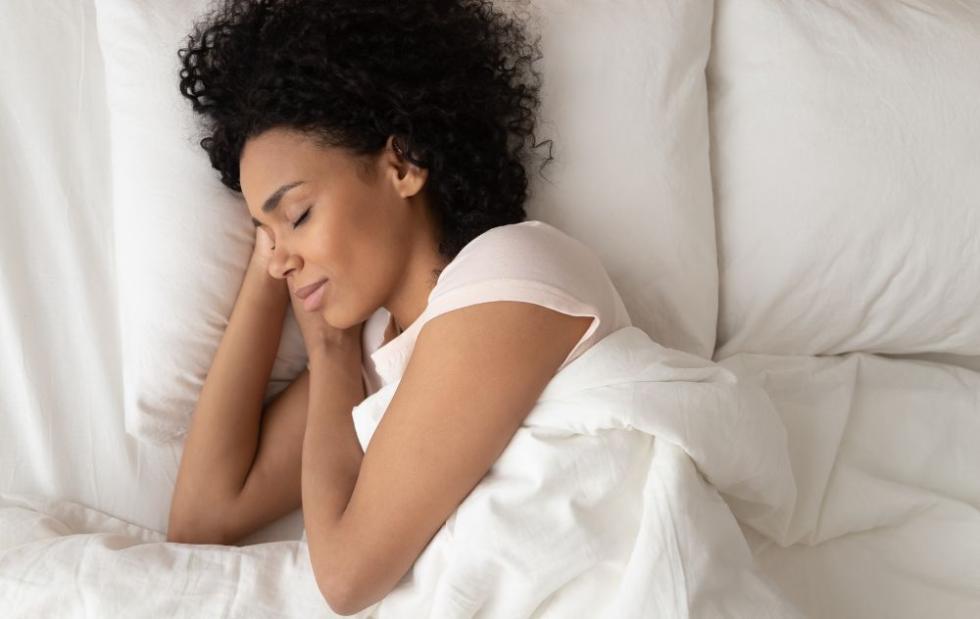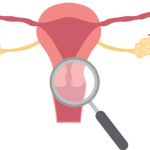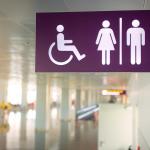
Topics covered in this blog:
- Getting Better Sleep With Fibroids
- Steps For Reducing Fibroid Pain At Night and Sleep Better
- Do Fibroids Make You Tired?
- More Sleep, Less Abdominal Fibroid Pain
- Frequent Urination During The Night
- Stop Fibroid Pain with UFE Treatment
Getting Better Sleep With Fibroids
If you have symptoms of uterine fibroids, you know fibroids can prevent you from getting a good night of rest.
Many women with fibroids can’t sleep because of excessive bleeding or abdominal discomfort. They may need to get up and change their tampons or pads multiple times during the night. They may also find they must go to the bathroom more often. With these disruptions, it’s difficult to feel rested the next morning when it’s time to get up.
At USA Fibroids Centers, we want you to know that you don’t have to go through these symptoms alone. Read on to learn more about how to sleep with fibroids using temporary solutions as well as how you can alleviate your symptoms for good.
Steps For Reducing Fibroid Pain At Night and Sleep Better
1. TRY HOME REMEDIES
Several home remedies can help temporarily ease painful fibroid symptoms for women who can’t sleep. If your fibroid pain worsens at night, you can:
- Use an over-the-counter anti-inflammatory such as ibuprofen. These drugs are especially helpful for managing menstrual pain.
- Apply a warm compress or heating pad.
- Gently massage your abdomen or lower back.
- Take a warm bath for 15-20 minutes.
- Meditation and stretching that focuses on your abdominal muscles.
2. TAKE VITAMIN SUPPLEMENTS
Some recent studies show that vitamin D plays a small role in fibroids’ growth. Women with a Vitamin D deficiency are more likely to develop fibroids, while those with enough vitamin have a lower risk and more controlled symptoms. You can also take iron supplements to help prevent anemia from heavy bleeding.
Talk to your doctor before taking any vitamins. They can guide you toward the best supplements and tell you which to stay away from to avoid worsening your symptoms. Stay away from “herbal remedies” that promise to cure your fibroids; these are marketing ploys that can do more harm than good.
3. EAT PLENTY OF FRUITS AND VEGETABLES
Research suggests that a healthy diet filled with vegetables and fruits can lower the risk of fibroids and help manage fibroid symptoms. Eat plenty of organic fruits and veggies and whole grains and lean meats throughout the day for a better night’s sleep. Spinach, lentils, cashews, and broccoli can help increase iron levels and help prevent anemia.
4. LIMIT ALCOHOL AND CAFFEINE INTAKE
Regularly drinking alcohol or caffeine can contribute to fibroid pain because these are inflammatory. Limit your intake — especially before bedtime — to improve your sleep with fibroids. Similarly, try to avoid sugary foods and red meats, which might be linked to a higher risk of fibroids and symptoms.
5. EXERCISE REGULARLY
Exercise works wonders for managing period pain and is equally effective at alleviating pain from fibroids. About seven hours of weekly physical activity can lower your chances of fibroid growth.
Exercise can also reduce your blood pressure, which is thought to be another factor leading to reducing fibroid symptoms. Working out regularly also boosts endorphins, nature’s “pain medication.” Stretches that include both abdominal and lower back muscles can help temporarily reduce discomfort as well and help you learn how to sleep with fibroids.
6. REDUCE STRESS
Feeling stressed due to fibroid pain, and the resulting lack of sleep is completely natural. However, studies suggest that fibroid growth and stress could be intertwined. Try to fit in a relaxing activity like yoga before bed to manage your symptoms. Learning to meditate can also be a good habit to reduce stress. Reducing screen time on social media and TV can also help stress levels.
Do Fibroids Make You Tired?
Ongoing fibroid symptoms can make you tired and have less energy for your regular tasks. One of the significant issues with fibroids and fatigue is anemia. You may become anemic due to loss of blood from heavy periods and bleeding in between periods. One of the main signs of anemia is feeling tired even after a good night’s sleep.
You may also become tired because you must get up at the night to urinate more frequently. Cramps and pain in the lower back and pelvic area can prevent you from resting at night.
More Sleep, Less Abdominal Fibroid Pain
Pain in the abdomen from fibroids can prevent you from sleeping well and feeling rested. You may experience chronic pain with fibroids, especially if they grow and become large. You may experience pain in the abdomen that runs down the hips and legs and into the lower back. You may wonder why fibroid pain is worse at night, and the answer may lie in how you sleep. You may find it increasingly difficult to find a comfortable position if you have an enlarged uterus.
Over-the-counter pain medication may be a viable option to get more sleep and reduce abdominal pain. However, it’s important to first talk to your doctor to ensure the medication is safe for you.
A heating pad and warm bath may also help reduce fibroid pain at night. Meditation and yoga can also relieve discomfort. These methods can provide temporary relief ahead of minimally invasive treatment.
Frequent Urination During the Night
If you wake up multiple times with an urgency to go to the bathroom, you may be experiencing issues with fibroids. This happens as the fibroids grow, causing the uterus to expand and placing pressure on the bladder. With the added pressure, the bladder can’t hold as much urine as normal, which leads to that frequent urgency you feel.
Another issue is when the uterus expands into the ureter, partially blocking it. With the ureter partially blocked, the bladder cannot eliminate all the urine.

Stop Fibroid Pain with UFE Treatment
While these tips can help you improve how to sleep with fibroids, they’re only temporary solutions and won’t get rid of the source of your pain or discomfort. USA Fibroid Centers offers a better option if you’re looking for freedom from fibroid pain. We specialize in a non-surgical, outpatient procedure called Uterine Fibroid Embolization (UFE). With just a small incision in your groin or wrist, our fibroid specialists can block off blood flow to your fibroids, causing them to shrink. This procedure uses your body’s natural pathways and arteries to treat the fibroids; therefore, no surgery or general anesthesia is required. Unlike surgical procedures, UFE allows patients to return to the comfort of their homes on the same day.
The fibroid specialists at USA Fibroid Centers will sit down with you to create a personalized treatment plan that fits your individual needs so that you can live a healthier, happier life. We’d love to talk with you to help you discover if UFE is right for you.
Contact us today for more information at 855.615.2555 or schedule your consultation with a professional at one of our centers.



